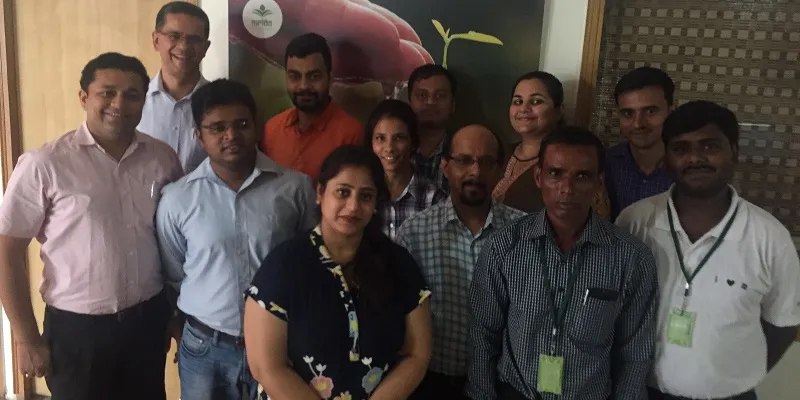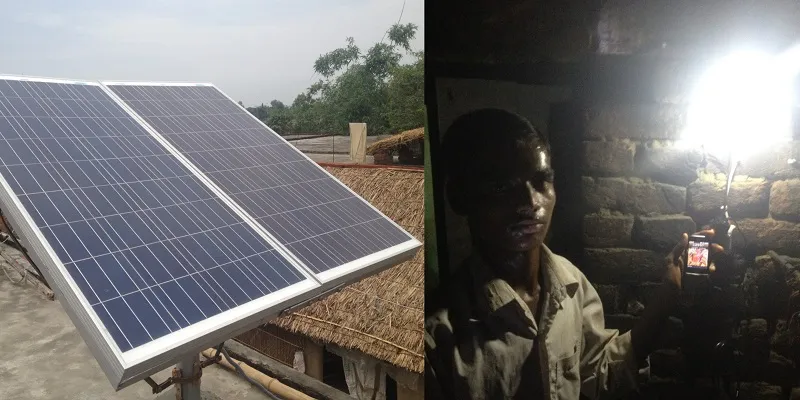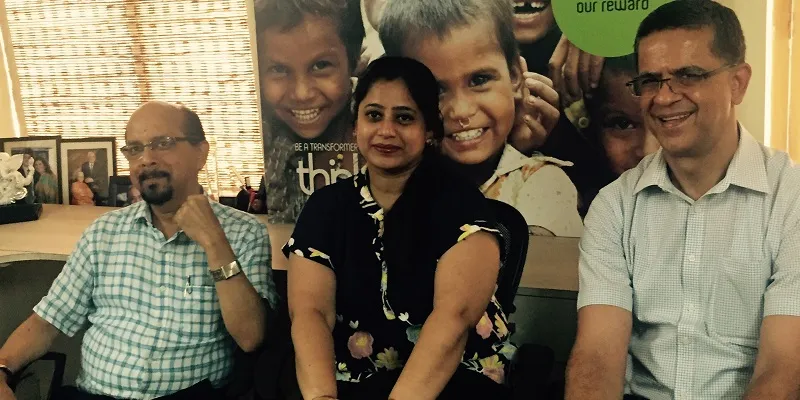How this Delhi-based social enterprise is helping rural India harness its potential
“There are no problems, only challenges. And we exist to convert challenges into opportunities.” This is the core philosophy of 54-year-old Arun Nagpal, a social entrepreneur who has co-founded Mrida, a Delhi-based social enterprise working for rural development across several Indian states.
‘Mrida’ means ‘Soil’ in Sanskrit. Founded in February 2014, the organisation has installed 40 solar micro grids and 200 solar street lights, and has illuminated over 2,000 rural households in less than three years. The social enterprise has also provided skill development training to over 150 villagers, and has impacted nearly 10,000 lives through its various rural projects.

Giving back to society
A Mechanical Engineer from the College of Engineering, Pune and a PGDM holder from IIM Calcutta, Arun spent about 28 years in the corporate sector before starting Mrida. After holding top roles in different organisations, he wanted to spend the last 10 years of his active work life in giving back to the society.
Arun recalls how he would often meet people who were once as good as him, but who were probably not as privileged as he was to reach the top. He says,
“I did reasonably well in life. My first opportunity to head a company came at the age of 38. I held leadership roles at the COO, CEO, MD and Board levels for the next 12 years of my life. Looking back, while my success no doubt had a lot to do with my own hard work, I would say that a significant part had to do with the facilitating environment that I was so privileged to enjoy.”
Arun’s father was a horticulturist with the government of Maharashtra, who was extremely passionate about rural development through a bottom-up approach. “He passed away about two years ago at the age of 94. In many ways, I seek to carry forward his legacy through Mrida.”

Many opportunities in the rural sector
Arun teamed up with two friends and like-minded ex-colleagues, Manoj Khanna and Gurveen Kaur Sood, and started Mrida as a social business venture with the aim of providing viable and sustainable ways to improve the lives of rural underserved communities. Arun says, “We were taken aback by the sheer number of possibilities that existed. We have been focused on creating scalable and sustainable models that work at the grassroots level.”
The team initially prepared several self-sustaining concepts that could be applied in various rural sectors such as microfinance, skill development, and women’s empowerment, seeking to provide livelihoods to the rural population in a sustainable manner. Soon, some of these projects were implemented in villages across the states of Rajasthan, Uttar Pradesh, Uttarakhand, Jammu & Kashmir and Madhya Pradesh. The results were encouraging as more projects were taken up.
Each rural project came up with new learnings. Arun shares an interesting experience when a school teacher, on being asked what could be done to improve the village school, asked for some sports equipment worth Rs 4,000. “This was all it took to organise a games class, an hour and a half after the midday meal. From a situation where students would skip school after their midday meals, this small intervention led to dramatic increase in the school’s attendance,” Arun says.

Channelling CSR
“Our projects were our biggest visiting card. When the corporates saw Mrida’s work, quite a few of them were interested in deploying their Corporate Social Responsibility (CSR) funds into the effort,” Arun says.
Using these CSR funds, Mrida has already implemented solar micro-grids in over 30 villages, along with other initiatives in the renewable energy sector, which amounts to saving nearly 10,000 litres of kerosene, originally used by the rural masses to meet their lighting requirements at night.
The work done by Mrida along with Mahindra & Mahindra Ltd in Kushinagar District in Eastern UP is an interesting case in point. Mrida started working here in 2015-16 with two villages, four micro grids, 19 solar LED street lights, one e-hub and one e-rickshaw. In 2016-17, this was scaled up to cover 11 villages, 18 solar micro grids, two e-hubs and three e-rickshaws. With more CSR funds flowing in, interventions were made in the health and agricultural sectors as well.
Other CSR partners of Mrida include leading business houses like Infrastructure Leasing & Financial Services Ltd (IL&FS), Reliance Industries Ltd, Rockman Industries, and AG Industries (Hero Motors Group).
Apart from other small and large scale projects engaged in employing and developing the skills of the rural population, Mrida also runs an extraction facility in Umbergaon, a small town in Gujarat’s Valsad District. The facility, which employs rural men and women, supplies a range of plant-based extracts such as aloe vera, noni, shatavari, ashwagandha, vijayasar, and amla to B2B customers from across the country. Mrida plans to develop its own range of health and wellness-related brands over the coming years.

Future plans
The first full year of operations saw a nominal top line of Rs 30 lakh across the different businesses, which increased to Rs 2 crore during 2015-16, with operating losses of about Rs 30 lakh. The social enterprise is expecting to close the current year with a turnover of above Rs 5 crore. Arun says,
“The extraction business will make profits, and will also be able to recover part of the earlier years’ losses. The energy access and holistic development business is expected to start making cash profits towards the end of the year. At this pace of growth, all businesses are expected to be in the green, become self-sustainable, and generate returns from 2017-18 onwards. As a matter of principle among the co-founders, all the operating profits in the first few years will be re-invested back into the business.”
Currently run by 27 employees, Mrida plans to grow larger and stronger. The social enterprise plans to work on many more initiatives with corporates, social organisations and individuals in the years to come. “Clearly, there is a lot to look forward to, with exciting times on the journey ahead,” Arun says.







